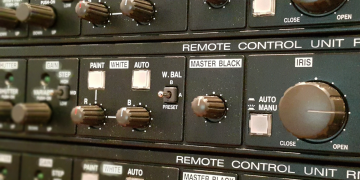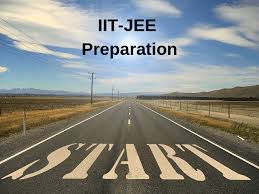The most common error that students make following their Class 10 board examination is to adopt the mindset that Class 11 may be used as a “time off” or relaxation period before preparation for Class 12 board examinations. The problem with such an attitude is that it might get you in hot water if you want to take a competitive exam like JEE. The curriculum for Class 11 and Class 12 combined is so large that preparing for both at the same time might be difficult. If you made a similar mistake in class 11, this post is for you.
Today, we’re going to provide some helpful hints on how to revise the class 11 JEE curriculum in Class 12.
Remember that the JEE syllabus is comprised of the fundamental ideas learned in the 11th and 12th grades. Regular study of these fundamentals is vital for every serious JEE student, as understanding a topic in class 11 does not guarantee that one would recall all of its complexities during the JEE test.
People have a propensity to forget things they don’t see very often, which is why revision is essential. If you do not review the class 11 syllabus while learning the new class 12 topics, you will most likely forget them, or at least a portion of them. However, if you review them regularly, they will stay fresh in your mind.
Have you ever noticed how difficult it is to memorize inorganic chemistry and how quickly you forget it if you don’t review it frequently? Whereas calculus formulae are tough to learn at first, they gradually get implanted in your mind and you can even recall them while sleeping? This is because you practice a lot of questions in calculus. This is not always the case in inorganic chemistry. Many students read an inorganic chemistry chapter, then do not practice many problems from that chapter and set it away.
Contents
Take Notes –
Many students make the mistake of marking everything in the textbook. While it is crucial to underline key ideas in the text, taking notes will make your revision much easier. You may jot things down in your notes based on your comprehension, and you can also include other tips and ideas that you find beneficial. Your notes should also include some significant questions and explanations that you believe are crucial to review immediately before the exam.
If you prepare your handwritten notes, you won’t have to turn the pages of the textbook just before the exam; simply read the notes and you’ll be done.
Make Memory Maps
In the context of taking notes, memory maps are essentially a visual or chart depiction of concepts. Pictures and flow charts are simple to remember. As a result, if you can write down a notion as a memory map, it will be easier to recall and will improve your grasp of the issue.
Make memory maps that are simple to recall and change, rather than complicated ones. You should design memory maps in such a manner that revision occurs rapidly, concentrating mainly on crucial concepts as well as concepts/formulae that you happen to forget.
Physics-
Physics is one of those subjects where the class 11th curriculum is crucial. Some of the most significant subjects to review in 11th-grade JEE Physics are:
- Newton’s Laws of Motion: continue to solve problems from this chapter to stay in contact. It is significant since you will be creating force/acceleration equations in class 12th chapters when studying columbic force among charges.
- Law of Conservation of Momentum: This chapter, like Newton’s Laws of Motion, is critical. It bears a lot of weight in JEE. Furthermore, many electromagnetic issues require the use of this rule. Many issues in JEE are a blend of class 12th and class 11th principles. For example, Newton’s Law, often known as the Law of Conservation of Momentum, may be applied to charged objects. You cannot afford to lose marks in such tasks since, while they appear to be difficult, they are rather simple to solve if you understand the ideas thoroughly.
- Law of Conservation of Energy: this is extremely important because the electrostatic force of attraction is conservative, and so, as mentioned in the preceding chapters, there are frequently combination questions in JEE that involve a combination of the electrostatic force of attraction and law of conservation of energy.
Chemistry
There are two very significant chapters in Chemistry from 11th grade that you should surely be strong in:
• Mole Idea: Throughout your JEE preparation, you will be applying the mole concept to a variety of issues. As a result, you should take care not to lose touch with this chapter. Several difficulties in inorganic and organic chemistry can only be solved if you understand the mole idea. Make a point of completing all of the challenges in this chapter.
• Periodic Table: The periodic table and its accompanying trends serve as the foundation of contemporary inorganic chemistry. To perform well in JEE chemistry, you need to be completely acquainted with this chapter.
Mathematics
Some of the main topics from the class 11th syllabus in math include:
- Complex numbers: this chapter is a little challenging. It is, nonetheless, immensely beneficial for solving difficult coordinate geometry issues. For example, a tough issue of coordinate geometry may need the use of rotation logic based on complex numbers. It is also one of the chapters with a reasonable weightage in the JEE syllabus. As a result, you should make it a point to revise it frequently and become an expert in it.
- Permutations and Combinations: another challenging chapter in the JEE syllabus. However, it is significant since many problems in the probability chapter need the direct use of permutations and combinations. You could lose out on a simple probability issue because you were unfamiliar with the material in this chapter. Make it a habit to review the important equations from this chapter regularly.
Managing revision of class 11 along with class 12
Students frequently struggle to strike a balance between learning new concepts and revisiting previously learned topics. Here are three fantastic tips to remember if you want to master the skill of revising class 11th curriculum parallel to class 12th:
- Set aside time for revision daily: the easiest approach to ensure that you revise regularly is to discipline yourself to spend at least an hour daily revising the ideas of class 11th. This practice will serve you well in life.
- Take brief notes: for each chapter in the JEE curriculum, write a one-page synopsis. You may then save it as a physical folder or a digital copy on your smartphone. During “filler” time, this copy might be utilized to revise the curriculum. Filler time is unstructured time, such as time spent travelling or commuting.
- Solve difficulties: You should get a revision package that simply comprises practice problems. You should next go through this revision package throughout class 12th, focusing mostly on the class 11th component. HC Verma Solutions For Class 11 & 12 Physics is one of the sources that can provide you with solutions for all the maths problems. You will receive an archive of difficult issues in this manner, which will assist you in developing your problem-solving abilities and simplifying the revision process for you.
- Identify Problem Areas: First and foremost, rather than going over all of Class 11, determine which topics require modification and to what amount. Make sure your goals are attainable. Don’t put yourself under too much strain, otherwise, you’ll wind yourself neglecting the Class 12 syllabus.
- Time Management: Set aside some time each day to go over prior chapters and stay up with those that are presently being taught. Concentrate on the chapters where you are weakest, and cover all three subjects, especially the ones you dislike. Allow one hour for revision of old ideas for every five hours of study. It is always preferable to undertake this revision first thing in the morning.





































